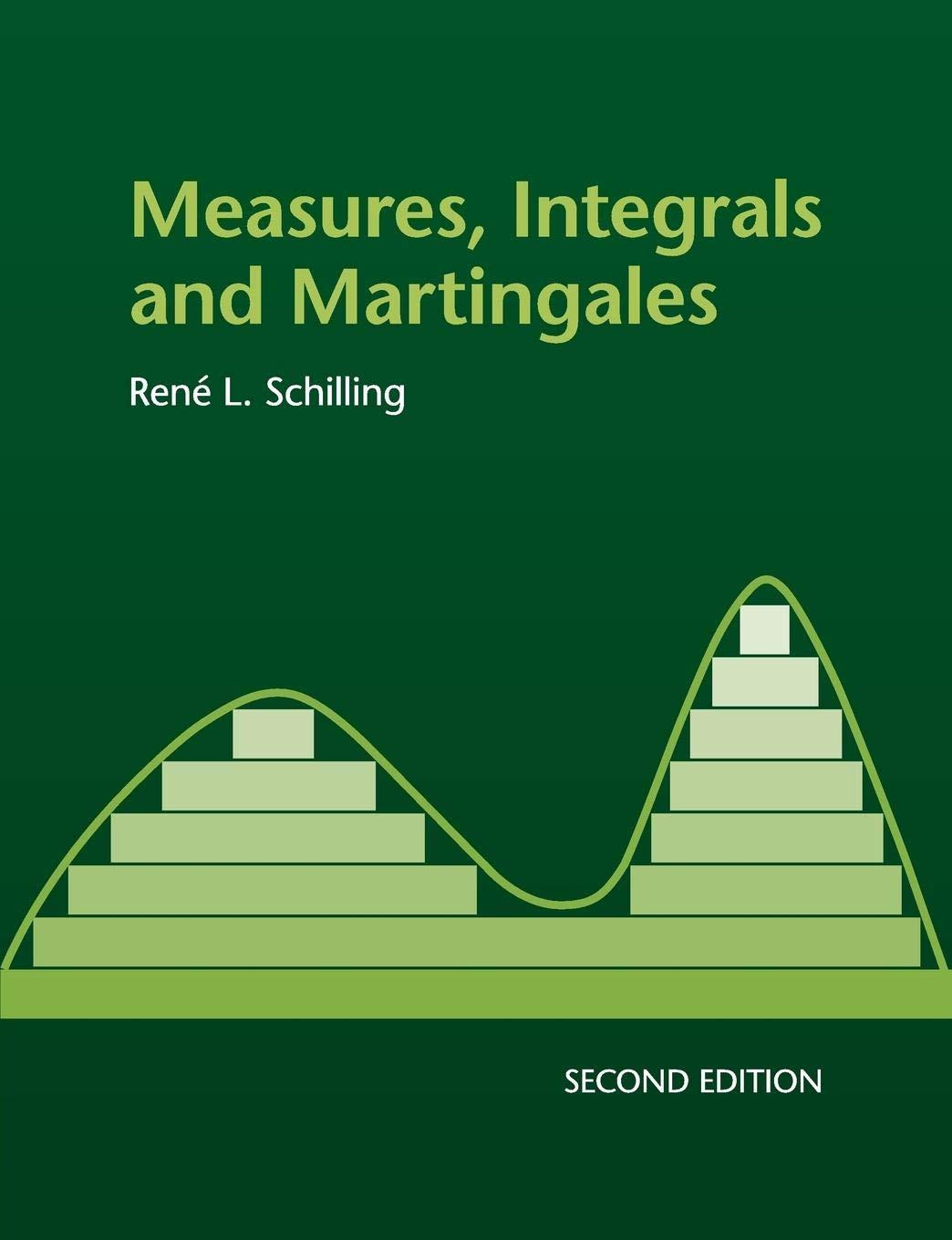Non-measurable sets (1). Let (mu) be a measure on (mathscr{A}={emptyset,[0,1),[1,2),[0,2)}, X=[0,2)), such that (mu([0,1))=mu([1,2))=frac{1}{2}) and (mu([0,2))=1). Denote
Question:
Non-measurable sets (1). Let \(\mu\) be a measure on \(\mathscr{A}=\{\emptyset,[0,1),[1,2),[0,2)\}, X=[0,2)\), such that \(\mu([0,1))=\mu([1,2))=\frac{1}{2}\) and \(\mu([0,2))=1\). Denote by \(\mu^{*}\) and \(\mathscr{A}^{*}\) the outer measure and \(\sigma\)-algebra which appear in the proof of Theorem 6.1 .
(i) Find \(\mu^{*}(a, b)\) and \(\mu^{*}\{a\}\) for all \(0 \leqslant a
(ii) Show that \((0,1),\{0\} otin \mathscr{A}^{*}\).
Data from theorem 6.1
![(Carathodory) Let 8C P(X) be a semi-ring and u: S [0, ] a pre-measure, i.e. a set function with (i) (0) = 0;](https://dsd5zvtm8ll6.cloudfront.net/images/question_images/1705/6/3/6/85265a9f3f4d614e1705636852299.jpg)

Fantastic news! We've Found the answer you've been seeking!
Step by Step Answer:
Related Book For 

Question Posted:





